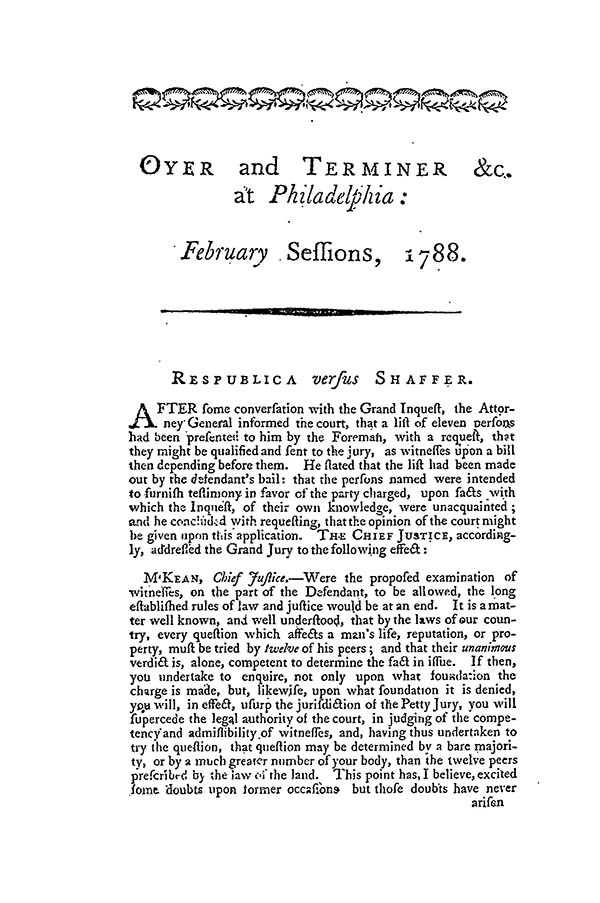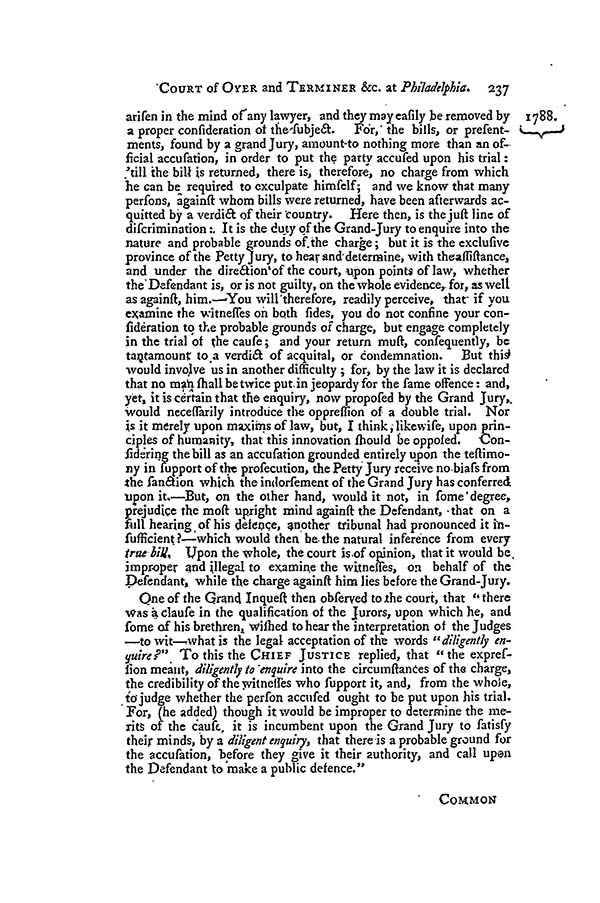Respublica v. Shaffer, 1 Dall. 236 (O. T. Phila. 1788)
Oyer and Terminer &c. at Philadelphia:
February Sessions, 1788.
Respublica versus Shaffer.
After some conversation with the Grand Inquest, the Attorney General informed the court, that a list of eleven persons had been presented to him by the Foreman, with a request, that they might be qualified and sent to the jury, as witnesses upon a bill then depending before them. He stated that the list had been made out by the defendant's bail; that the persons named were intended to furnish testimony in favor of the party charged, upon facts with which the Inquest, of their own knowledge, were unacquainted; and he concluded with requesting, that the opinion of the court might be given upon this application. The Chief Justice, accordingly, addressed the Grand Jury to the following effect:
M'Kean, Chief Justice.—Were the proposed examination of witnesses, on the part of the Defendant, to be allowed, the long established rules of law and justice would be at an end. It is a matter well known, and well understood, that by the laws of our country, every question which affects a man's life, reputation, or property, must be tried by twelve of his peers; and that their unanimous verdict is, alone, competent to determine the fact in issue. If then, you undertake to enquire, not only upon what foundation the charge is made, but, likewise, upon what foundation it is denied, you will, in effect, usurp the jurisdiction of the Petty Jury, you will supercede the legal authority of the court, in judging of the competency and admissibility of witnesses, and, having thus undertaken to try the question, that question may be determined by a bare majority, or by a much greater number of your body, than the twelve peers prescribed by the law of the land. This point has, I believe, excited some doubts upon former occasions but those doubts have never
One of the Grand Inquest then observed to the court, that "there was a clause in the qualification of the Jurors, upon which he, and some of his brethren, wished to hear the interpretation of the Judges—to wit—what is the legal acceptation of the words "diligently enquire?" To this the Chief Justice replied, that "the expression meant, diligently to enquire into the circumstances of the charge, the credibility of the witnesses who support it, and, from the whole, to judge whether the person accused ought to be put upon his trial. For, (he added) though it would be improper to determine the merits of the cause, it is incumbent upon the Grand Jury to satisfy their minds, by a diligent enquiry, that there is a probable ground for the accusation, before they give it their authority, and call upon the Defendant to make a public defence."
Citation: Respublica v. Shaffer, 1 Dall. 236, 1 U.S. 236 (O. T. Phila. 1788).


Last modified: January 12, 2015